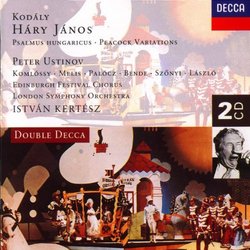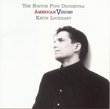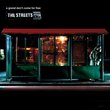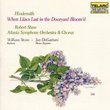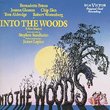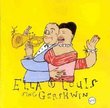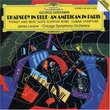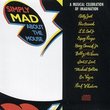| All Artists: Kodaly, Ustinov, Kertesz, Lso Title: Hary Janos / Psalmus Hungaricus Members Wishing: 0 Total Copies: 0 Label: Polygram Records Release Date: 10/11/1994 Genre: Classical Styles: Opera & Classical Vocal, Historical Periods, Modern, 20th, & 21st Century Number of Discs: 2 SwapaCD Credits: 2 UPC: 028944348828 |
Search - Kodaly, Ustinov, Kertesz :: Hary Janos / Psalmus Hungaricus
CD DetailsSimilarly Requested CDs
|
CD ReviewsA complete Hary Janos with Ustinov taking all the parts Santa Fe Listener | Santa Fe, NM USA | 12/01/2005 (5 out of 5 stars) "This long out-of-print 1968 Hary Janos from Istvan Kertesz and the London Sym. has returned as a bargain two-fer from Decca. It was famous in its day for being complete (more than 90 min. of music and dialogue compared to the 20 min. orchestral suite that has been widely recorded) and for the droll narration by Peter Ustinov, who plays every character, male and female, in this mock-heroic folk epic about a pesant soldier, Hary Janos, and his fabulous adventures in the Napoleonic wars--which include the capture of Napoleon himself and being offered the emperor's daughter as his bride.
The four acts of Kodaly's musical play would be hard sledding for non-Hungarians in their original tongue. Ustinov does all he can to make the so-so English translation sound funny; he achieves a lot through improvisation and mumbled asides, not to mention his comic accents from every corner of Europe. It's all in service of Kodaly's fairy-tale score, which contains many songs and dances just as lively and melodic as the familiar suite. Kertesz and the Decca engineers collaborate to bring us all the vivid orchestral effects (a huge orchestral sneeze, clocks, bells, bugle calls, battle charges, peasant dancing accompanied on a hammered cimbalom, a Hungarian folk instrument that sounds like a balalaika struck percusison style), and the recorded sound is excellent. Ustinov, the singers, and the cimbalom are placed up close, the orchestra and chorus at mid-distance. The soloists are all native Hungarians, even though the production comes from London, and their voices have a marked Slavic cast that may not suit all listeners. Yet this reading is never less than authentic and invigorating. As filler we get two other major Kodaly works, the Peacock Variations and the choral Psalmus Hungaricus, both extremely well done but, alas, without text for the Psalmus." |

